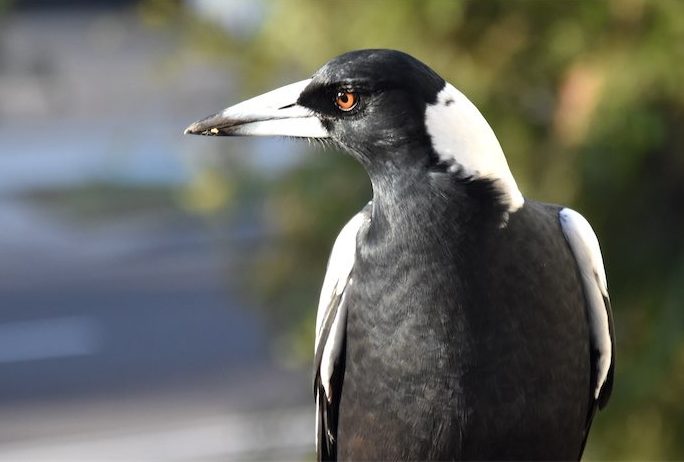
SPRING has sprung, but so too has Canberra’s infamous magpie-swooping season.
The capital has already seen more than 85 magpie attacks reported on magpiealert.com since July 27, five of which have resulted in injuries.
“It chased me for a good 50 metres and kept following despite dismounting,” said one cyclist who was attacked on Cavanagh Street, Gungahlin, last month.
“Very aggressive swooped twice. Made contact with side of head and cut to ear. Ended up at walk-in centre with cleanup of cut and tetanus injection,” wrote another person attacked on Charles Place, Gordon.
One person in Ngunnawal reported they were persistently swooped from behind by multiple birds, while another in Bruce said their small child was attacked while riding a balance bike.
As the season of renewal sets in, the swoopings are set to increase. Last year the ACT saw more than 1000 reported magpie attacks, and that’s not including the many also reported in Queanbeyan.
So what makes magpies swoop and why particularly at this time of year?
According to Canberra ornithologist Neil Hermes, it’s magpie-mating season, during which male magpies become more territorial to protect their young.
“When they have eggs and whilst they have young, some birds get very territorial and protect their young from what they perceive to be potential threats to their nest,” says Hermes.
“This usually [involves] a bird flying in from behind and calling at the same time to try and frighten you away. It can be very disturbing for people when it happens.
“Because the magpie’s bill has a small hook on the end it can create a wound on your head, and in very bad cases this can lead to serious injuries including the loss of an eye. It’s not to be taken lightly.”
Hermes says the intelligent birds can also be quite picky about who they swoop and who they don’t.
“It’s interesting that some birds don’t swoop at all. It’s also interesting that some birds tend to swoop certain sorts of perceived threats,” he says.
“They can concentrate on people on bikes or men or even people with certain clothing.”
Cyclists and dog-walkers are common targets for swooping magpies, with the birds considering them more dangerous threats due to them moving faster than other passers-by.
So how can you keep safe from the black-and-white wrath?
Hermes says the best option is to steer clear of areas where magpies are known to swoop.
Resources like magpiealert.com will display where magpies are nesting and keeping an ear open for their distinctive calls is another good way to stay out of trouble.
“Another thing you can do to discourage a magpie from swooping is protecting yourself from behind. That can be wearing a hat and then even if they do strike you it’s not going to create any injury,” says Hermes.
“I would highly encourage people with young children to keep them away from known magpie nests.
“If a child falls over and the magpie gets better access, it’s easier for them to attack and potentially hit the child’s face.”
If you find yourself face-to-face with a swooping magpie, here are some other tips from experts, according to magpiealert.com:
- Cyclists beware. If you are swooped while cycling, get off of your bike and just walk (never run) and it may deter a magpie.
- Protection is key. Wear sunglasses with a large, wide-brimmed hat to protect your head and eyes.
- Don’t aggravate them. Magpies will see you as a threat if you wave your arms, shout or throw things at them. Studies show magpies can remember dozens of people. Some birds can even remember a single face for years, more of a reason not to get on their bad side!
- Spread the word. Warn other people where the magpies are swooping locally and register swoops on the national magpie map.
While Hermes says a swooping magpie can be an intimidating thing, there’s a lot more to the birds, who usually only remain territorial for around six weeks – or until around the end of November.
“They’re a wonderful bird and have a beautiful call,” says Hermes.
“Once their young have dispersed the territorial behaviour goes away.”
An extra fun fact: look closely at a photo of a magpie bill front-on and you may just spot a seagull.
Who can be trusted?
In a world of spin and confusion, there’s never been a more important time to support independent journalism in Canberra.
If you trust our work online and want to enforce the power of independent voices, I invite you to make a small contribution.
Every dollar of support is invested back into our journalism to help keep citynews.com.au strong and free.
Thank you,
Ian Meikle, editor




Leave a Reply